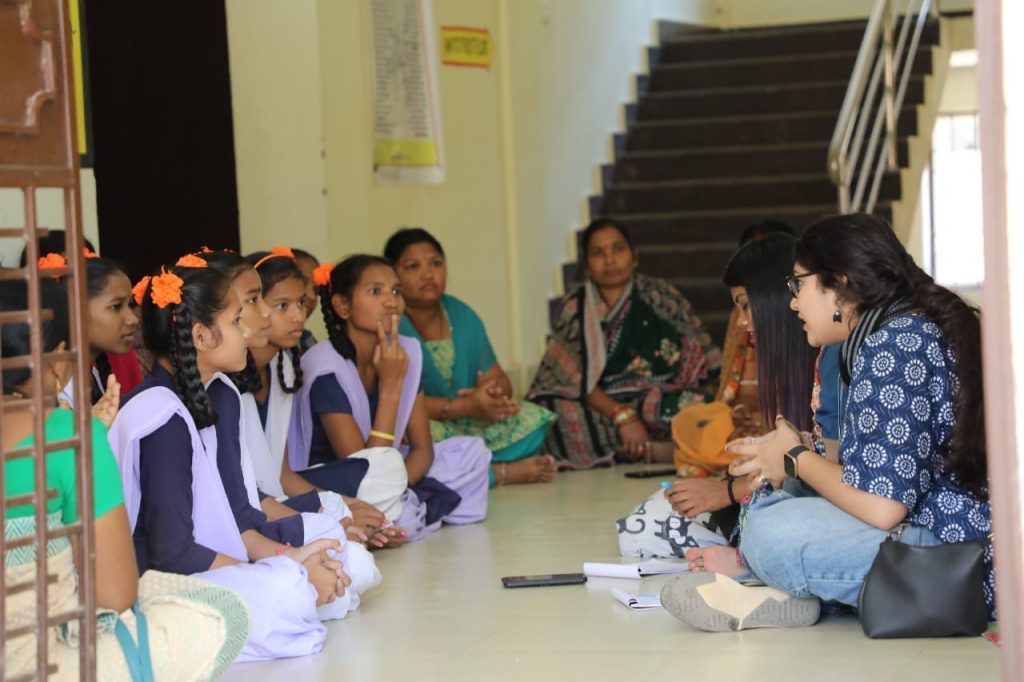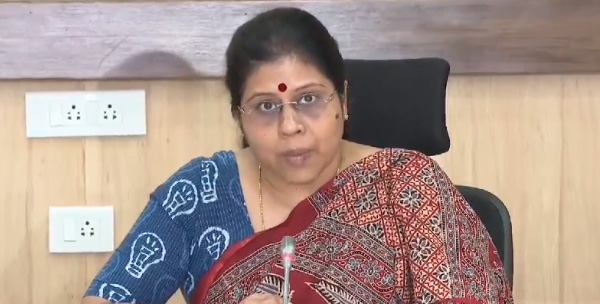Bhubaneswar: Ace Administrator, Roopa Roshan Sahoo, Member Secretary, Poverty and Human Development Monitoring Agency (PHDMA), while addressing a session of the National Conference for Monitoring, Evaluation and Learning (NCEML-2024) organized by the Development Monitoring and Evaluation Office (DMEO), NITI Aayog, presented the qualitative monitoring methods adopted by the agency for impact analysis with a perspective that brings out the lived realities of people at the ground across Odisha, which include both the beneficiaries and cutting-edge functionaries.
She spoke at the third national conference on M.E.L. held at Vigyan Bhavan in New Delhi and had the theme “Measuring Impact to Shaping Policies”. The conference aimed at facilitating solution-driven discussions, uniting national and state governments, sectoral experts, academia, and international non-governmental organizations, dedicated to advancing M&E practices.
Addressing as a panelist of the session titled, “Mastering Monitoring: Insights from State-Adopted Best Practices (Unlocking Efficiency, Transparency, and Accountability for Tomorrow’s Governance)”, she narrated about the qualitative monitoring approach of PHDMA which puts people and their lived experiences on the forefront unlike the quantitative monitoring that quantifies the outcomes without shading any light on the impact, the initiatives have on people.
Who better than PHDMA, an autonomous organisation under Planning & Convergence Department of Government of Odisha, can provide a clear and concise display of the new-age qualitative monitoring and evaluation practice in the state for assessing impact of welfare measures and shaping policies? For the last four years, PHDMA has been undertaking people-centric, narrative-based and sense-making monitoring, evaluation and documentation of multi-sectoral interventions towards poverty eradication, reducing inequalities and moving towards shared prosperity in the state.

“At PHDMA, we undertake collection and collation of narratives from people or households to understand impact. Well-being is not about one scheme; they are the outcome of basket of schematic interventions. No household is about one beneficiary; it is about members receiving multiple inputs. We discuss with multiple beneficiaries in a household, listen to their lived experiences with the schemes, deeply observe their surroundings, make sense of what we hear and what we observe, we visually document everything from the ground and finally collate the narratives to assess the impact. Statistics doesn’t tell us this, stories do,” she spoke during the panel discussion.
The qualitative monitoring has given ways to assess the good helping the machinery to do the necessary course correction. Realising that wicked problems needed complex approach to address, PHDMA has reimagined itself to seek out solutions to issues affecting people from their own experiences. Prioritising people and their stories, PHDMA deployed techniques such as deep listening, field observation, sense-making to conduct its continuous monitoring and narrative-based evaluation across the state. PHDMA practices what it believes, “Governance initiatives impact people’s lives. Prosperity is not in numbers, It’s in the stories that we see and will tell,” she explained.
She also highlighted some of the efficacious impact assessment studies undertaken by PHDMA that have spotlighted the progress of basket of schemes and helped in reshaping policies. The Swabhiman Tales, an impact assessment study carried out at the Swabhiman Anchal, the erstwhile cut-off area in Odisha’s southernmost district, Malkangiri, which was notorious for being left-wing extremist affected, portrayed a clear picture of ongoing development works following the construction of Gurupriya bridge and mapped the rising aspirations among the residents.
Similarly, the study in Rayagada, Nabaraangpur, Nuapada districts to assess the availability of services with respect to their utilities basing on the on Multi-dimensional Poverty Index (MPI) report, brought out some of the unique aspects from the ground. The teams studied the indices like access to drinking water, lack of assets or supply being erratic and the narratives provided an array of perspectives which were used as policy inputs.
PHDMA’s practice of the qualitative monitoring in shaping policies has been evidenced through its various studies. The presentation was well-appreciated by all the panelists and audiences present at the DMEO conference.


